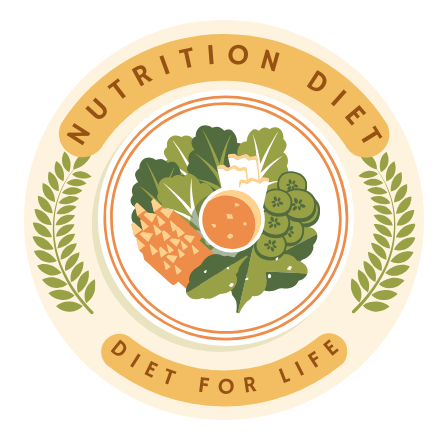Athletes constantly push their bodies to the limit whether sprinting, lifting heavy weights, or engaging in intense training sessions. To achieve peak performance and ensure optimal recovery, nutrition plays a crucial role in their daily routines. Without the proper balance of macronutrients, micronutrients, hydration, and meal timing, even the most rigorous training plans can fall short. The right nutrition is essential not only for enhancing performance but also for accelerating recovery, reducing the risk of injury, and supporting long-term health.
Macronutrients carbohydrates, proteins, and fats serve as the foundation of an athlete’s diet, providing the energy required for training and the nutrients needed for muscle repair. Carbohydrates are the primary energy source for high-intensity activities, while protein aids in muscle recovery and growth. Healthy fats support endurance and joint health. Micronutrients, including vitamins and minerals, help regulate metabolic processes, reduce inflammation, and support immune function, all of which are vital for maintaining peak performance. Hydration is another cornerstone of athletic nutrition. Dehydration can significantly impair performance, leading to fatigue, cramps, and reduced focus. Proper hydration ensures that the body functions optimally, especially during prolonged or intense physical activity.
Finally, meal timing is key to fueling the body at the right moments. Eating balanced meals and snacks before, during, and after training ensures that the body has the necessary nutrients to perform at its best and recover efficiently. This guide will explore these nutrition strategies in detail, providing athletes with the knowledge to fuel their bodies effectively for both performance and recovery.
The Role of Macronutrients in Athletic Performance
Macronutrients, which include carbohydrates, proteins, and fats, are the foundation of an athlete’s nutrition plan. Each of these plays a vital role in performance and recovery, and understanding how they interact with the body can provide athletes with the tools needed to maximize their potential.
1. Carbohydrates: The Body’s Primary Source of Energy
Carbohydrates are the most important source of fuel for athletes, particularly during high-intensity activities like sprinting, weightlifting, or team sports. When you consume carbs, your body breaks them down into glucose, which is either used immediately for energy or stored as glycogen in the muscles and liver. This glycogen serves as your energy reserve during exercise.
Types of Carbohydrates: Simple vs. Complex
Not all carbohydrates are created equal. Simple carbohydrates (found in foods like candy, soda, and white bread) are digested quickly, leading to a rapid spike in blood sugar. While these can be useful for quick energy during or immediately after exercise, they provide little nutritional value.
On the other hand, complex carbohydrates (found in whole grains, vegetables, legumes, and fruits) take longer to break down, providing a steady and consistent source of energy over time. This is particularly beneficial for endurance athletes or anyone engaging in prolonged physical activity.
How Much Carbohydrates Do Athletes Need?
The amount of carbohydrates an athlete needs depends on the intensity and duration of their training. For light to moderate exercise, athletes should consume 3-5 grams of carbs per kilogram of body weight. For intense training or endurance activities, the requirement can rise to 6-10 grams per kilogram of body weight per day.
Sources of Carbohydrates for Athletes
Some excellent sources of complex carbohydrates include:
- Whole grains (oats, quinoa, brown rice, whole wheat pasta)
- Starchy vegetables (sweet potatoes, squash, corn)
- Legumes (beans, lentils, chickpeas)
- Fruits (bananas, apples, berries)
- Vegetables (broccoli, spinach, carrots)
Athletes should aim to include a variety of these carbohydrate sources in their diet to ensure they are getting a range of nutrients, including fiber, vitamins, and minerals.
2. Proteins: The Building Blocks of Muscle Recovery
Protein is a crucial nutrient for athletes, as it helps with muscle repair and growth. When you engage in high-intensity workouts, your muscle fibers experience small tears, which need to be repaired. The body uses protein to rebuild these fibers, resulting in stronger muscles over time.
Importance of Protein for Athletes
For athletes, protein is not just for muscle building. It plays a role in the production of enzymes, hormones, and immune system components. Without adequate protein, recovery from training sessions can be slower, leading to fatigue and increased injury risk.
How Much Protein Do Athletes Need?
The amount of protein needed varies based on the type of training and the athlete’s body mass. On average, athletes require around 1.2 to 2.0 grams of protein per kilogram of body weight per day. For those focused on muscle gain or strength training, the higher end of this range is generally more appropriate.
Optimal Timing for Protein Intake
Consuming protein in regular intervals throughout the day ensures a continuous supply of amino acids, the building blocks of muscle tissue. It is especially important to consume protein shortly after a workout, as the body is in a heightened state of repair. A combination of protein and carbohydrates post-workout can accelerate the replenishment of glycogen stores while promoting muscle recovery.
Sources of Protein for Athletes
Athletes can meet their protein needs through a variety of sources, both animal and plant-based:
- Lean meats (chicken, turkey, lean beef)
- Fish and seafood (salmon, tuna, shrimp)
- Eggs and dairy (milk, yogurt, cheese)
- Legumes (lentils, chickpeas, beans)
- Plant-based options (tofu, tempeh, quinoa, edamame)
Athletes should also consider the timing of their protein intake—spreading it across all meals can help maximize muscle protein synthesis throughout the day.
3. Fats: The Unsung Hero of Endurance and Joint Health
While often vilified in mainstream diet trends, fats are an essential macronutrient that provides the body with sustained energy, especially during long-duration, low-intensity exercises like marathon running or cycling. Fats are also crucial for absorbing fat-soluble vitamins (A, D, E, and K) and promoting overall cellular function.
Types of Fats: Saturated vs. Unsaturated
Fats can be classified into saturated and unsaturated fats. Saturated fats (found in foods like butter, fatty cuts of meat, and certain processed foods) should be limited as they can contribute to heart disease if consumed in excess.
Unsaturated fats, which are considered healthier, are found in foods like nuts, seeds, avocados, and fatty fish. These fats help reduce inflammation, support brain function, and improve overall health.
How Much Fat Should Athletes Consume?
Fat should make up about 20-35% of an athlete’s total daily calorie intake. This can vary based on the athlete’s sport and individual needs, but fat should not be eliminated from the diet, as it plays a key role in energy balance and nutrient absorption.
Sources of Healthy Fats for Athletes
- Nuts and seeds: Almonds, walnuts, chia seeds, flaxseeds
- Healthy oils: Olive oil, avocado oil, coconut oil
- Fatty fish: Salmon, mackerel, sardines, trout
- Plant-based fats: Avocados, olives, coconut, nut butters
These fats provide essential fatty acids such as omega-3s, which help reduce inflammation and promote joint and heart health.
Micronutrients: Vital for Optimal Performance and Recovery
Micronutrients, including vitamins and minerals, are crucial for maintaining good health and ensuring that the body’s biochemical processes run smoothly. While they don’t provide energy directly, they play a vital role in everything from energy metabolism to muscle contraction and immune function.
1. Key Micronutrients for Athletes
Iron: Essential for Oxygen Transport
Iron is particularly important for endurance athletes, as it is a key component of hemoglobin, which helps transport oxygen to muscles during exercise. Without sufficient iron, athletes may experience fatigue and decreased performance.
Sources of iron include:
- Red meat (beef, lamb)
- Poultry (chicken, turkey)
- Leafy greens (spinach, kale)
- Legumes (lentils, beans)
Calcium and Vitamin D: Building Strong Bones
Calcium is essential for strong bones and muscle contraction, while vitamin D helps the body absorb calcium. A deficiency in either of these nutrients can lead to weakened bones and an increased risk of stress fractures, particularly in athletes who engage in high-impact or weight-bearing activities.
Sources of calcium include:
- Dairy products (milk, yogurt, cheese)
- Leafy greens (collard greens, broccoli)
- Fortified plant-based milks (almond, soy, oat)
Vitamin D can be obtained from sunlight and fortified foods (e.g., fortified dairy or cereals). Foods like fatty fish (salmon, mackerel) are also rich in vitamin D.
Magnesium: Supporting Muscle Function
Magnesium is crucial for muscle function, nerve transmission, and energy production. It also plays a key role in protein synthesis, which is vital for muscle repair and recovery after intense physical activity.
Sources of magnesium include:
- Leafy greens (spinach, kale)
- Nuts and seeds (almonds, pumpkin seeds)
- Whole grains (brown rice, quinoa)
2. The Role of Antioxidants in Recovery
Intense exercise increases the production of free radicals, which can damage cells and lead to inflammation. Antioxidants help neutralize these free radicals, protecting muscles and tissues from oxidative stress. Vitamins C and E are particularly potent antioxidants that can help reduce muscle soreness and inflammation.
Sources of antioxidants include:
- Vitamin C: Citrus fruits (oranges, lemons), strawberries, bell peppers, broccoli
- Vitamin E: Nuts, seeds, vegetable oils, spinach
Section 3: Hydration: Staying Balanced for Optimal Performance
Hydration is one of the most crucial components of an athlete’s nutrition plan. Even mild dehydration can negatively impact performance, causing fatigue, cramps, and reduced concentration. During exercise, athletes lose fluids through sweat, and it’s essential to replenish these losses to maintain optimal body function.
1. How Much Water Do You Need?
The amount of water an athlete needs depends on a variety of factors, including exercise intensity, environmental conditions (heat, humidity), and individual sweat rates. A general guideline is to consume around 16-20 ounces of water 2-3 hours before exercise, and 7-10 ounces every 10-20 minutes during exercise.
After exercise, it’s important to rehydrate with water or an electrolyte drink. Aim to replace at least 150% of the fluid lost during exercise.
2. Electrolytes: Maintaining Fluid Balance
Electrolytes like sodium, potassium, magnesium, and calcium are lost through sweat during exercise. These minerals are crucial for maintaining fluid balance and supporting muscle function. When they become imbalanced, it can lead to muscle cramps, dizziness, and decreased performance.
Sports drinks or electrolyte tablets can help replenish these minerals, particularly during long-duration exercise. Coconut water is a natural alternative rich in electrolytes.
The Importance of Meal Timing for Performance
The timing of meals and snacks can have a profound impact on athletic performance and recovery. Proper meal timing ensures that the body has access to the nutrients it needs at the right time.
- Before Exercise: Fueling for Energy
A balanced pre-workout meal should consist of carbohydrates, protein, and a small amount of fat. Ideally, this meal should be consumed 2-3 hours before exercise to allow time for digestion. A pre-workout snack 30-60 minutes before exercise can help provide a quick source of energy. - During Exercise: Maintaining Energy Levels
For workouts lasting more than an hour, athletes should consider consuming carbohydrate-rich snacks or drinks to maintain blood glucose levels. Energy gels, bars, and sports drinks are commonly used for this purpose. - Post-Exercise: Maximizing Recovery
The post-workout period is when the body is most receptive to nutrients. Consuming a meal that includes both protein and carbohydrates within 30-60 minutes after exercise helps to replenish glycogen stores and repair muscle tissues. A combination of protein and carbs accelerates recovery and reduces muscle soreness.
Conclusion
Nutrition is a key factor in enhancing both performance and recovery for athletes. A well-balanced diet rich in carbohydrates, proteins, fats, and essential micronutrients provides the foundation for success in training and competition. Each macronutrient plays a specific role in fueling the body, supporting muscle repair, and maintaining overall energy levels. Carbohydrates are crucial for providing immediate energy during intense exercise, while proteins help rebuild and strengthen muscles after workouts. Healthy fats are essential for long-lasting energy, joint health, and inflammation reduction. In addition to macronutrients, micronutrients like vitamins and minerals support vital bodily functions, from immune health to muscle function and energy metabolism. Hydration also plays a central role in an athlete’s nutrition strategy dehydration can impair performance, slow recovery, and increase the risk of injury. Equally important is the timing of meals and snacks. By strategically fueling before, during, and after exercise, athletes ensure their bodies have the energy they need to perform at their best and recover efficiently. Pre-workout meals supply the necessary fuel, while post-workout nutrition helps replenish glycogen stores and repair muscle tissue.
SOURCES
Baker, D. & Newton, R. U. (2008). Nutritional considerations for strength training and performance. Sports Science Exchange, 21(2), 1-6.
Burke, L. M. (2015). Nutrition for sport and exercise. Human Kinetics.
Cermak, N. M., Res, P. T., Stellingwerff, T., Saris, W. H. M., & Van Loon, L. J. C. (2012). Carbohydrate supplementation improves high-intensity exercise performance and spares muscle glycogen. Journal of Applied Physiology, 113(2), 199-208.
Gleeson, M., Bishop, N., Stensel, D. J., Murphy, A., Pedersen, B. K., & Nieman, D. C. (2013). Nutrition and immunity. Journal of Sports Sciences, 31(3), 270-290.
Helms, E. R., Aragon, A. A., & Fitschen, P. J. (2014). Evidence-based recommendations for natural bodybuilding contest preparation: Nutrition and supplementation. Journal of Strength and Conditioning Research, 28(10), 2975-2989.
Maughan, R. J., & Shirreffs, S. M. (2008). Hydration and sports performance. Journal of Sports Sciences, 26(Suppl 1), 15-24.
Phillips, S. M. (2014). A brief review of critical processes in exercise-induced muscular hypertrophy. European Journal of Applied Physiology, 114(4), 781-784.
Schwabe, J. & Eller, C. A. (2020). Sports nutrition: A guide for the professional. Sports Medicine, 50(4), 634-648.
Tesch, P. A., Trappe, S. W., Widrick, J. J., & Larsson, L. (2004). Influence of lactate threshold on performance in endurance events: A review. European Journal of Applied Physiology, 93(1), 65-75.
Williams, M. H. (2005). Nutrition for health, fitness & sport. McGraw-Hill.
HISTORY
Current Version
November 16, 2024
Written By:
SUMMIYAH MAHMOOD




